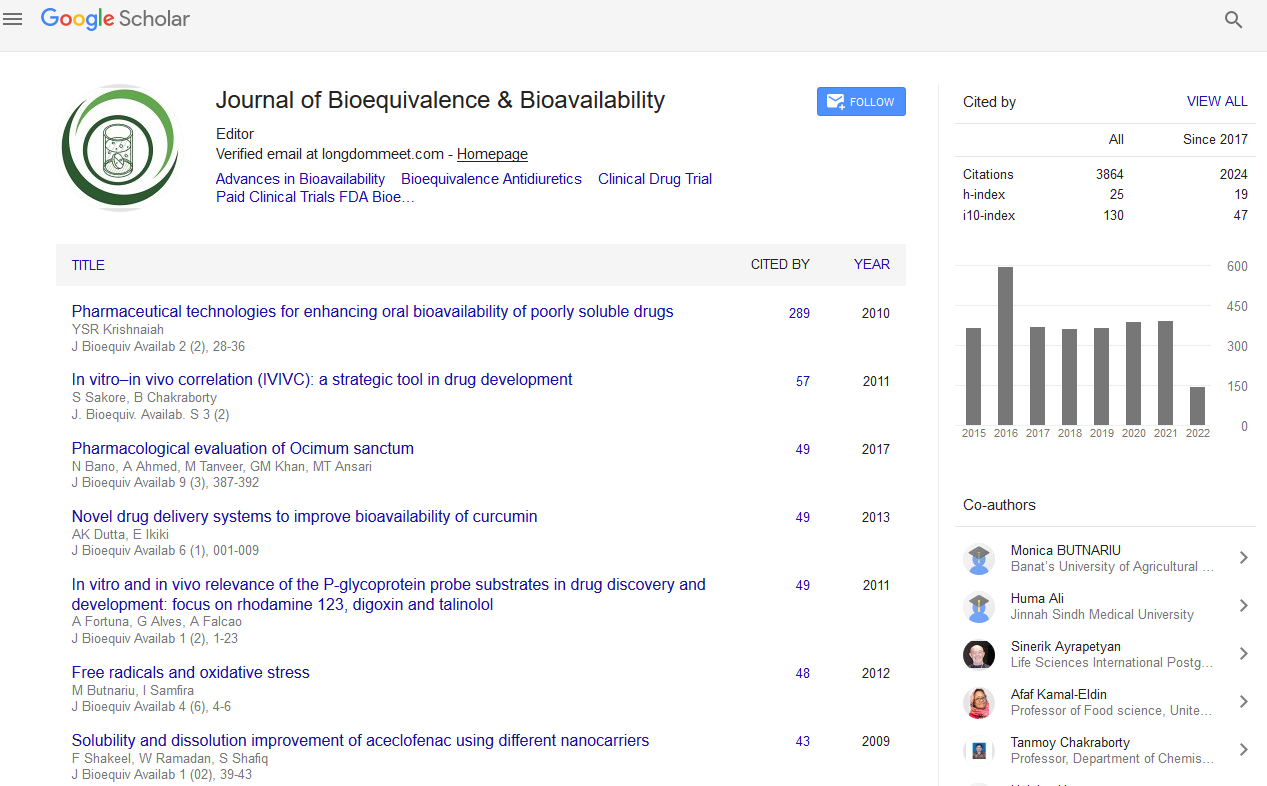PMC/PubMed Indexed Articles
Indexed In
- Academic Journals Database
- Open J Gate
- Genamics JournalSeek
- Academic Keys
- JournalTOCs
- China National Knowledge Infrastructure (CNKI)
- CiteFactor
- Scimago
- Ulrich's Periodicals Directory
- Electronic Journals Library
- RefSeek
- Hamdard University
- EBSCO A-Z
- OCLC- WorldCat
- SWB online catalog
- Virtual Library of Biology (vifabio)
- Publons
- MIAR
- University Grants Commission
- Geneva Foundation for Medical Education and Research
- Euro Pub
- Google Scholar
Useful Links
Share This Page
Journal Flyer

Open Access Journals
- Agri and Aquaculture
- Biochemistry
- Bioinformatics & Systems Biology
- Business & Management
- Chemistry
- Clinical Sciences
- Engineering
- Food & Nutrition
- General Science
- Genetics & Molecular Biology
- Immunology & Microbiology
- Medical Sciences
- Neuroscience & Psychology
- Nursing & Health Care
- Pharmaceutical Sciences
Comparison of different mobile phase modifi ers according to their suitability for determination of chromatographic lipophilicity parameters
International Conference and Exhibiton on Pharmaceutical Regulatory Affairs
6-7 September 2011 Baltimore, USA
Jolanta Flieger
Scientific Tracks Abstracts: JBB
Abstract:
T he hydrophobicity is the main factor deciding about affi nity of molecules for biological membranes. Th is physicochemical property of molecule is measured by the octanol-water distribution coeffi cient (P o/w ) defi ned as the ratio of the concentrations of the solute in the two phases of a saturated 1-octanol?water system. Direct measurement of this constant can be made by the traditional shake-fl ask method which is time-consuming and limited in range. Th e alternative methods for experimental measurements of log P values are the chromatographic techniques basing on partitioning of solutes between two immiscible phases: a stationary and a mobile phase. Several studies suggested the use of chromatografi cally determined parameters such as log k w , φ 0, S and even simply isocratic log k values as a scale of lipophilicity. Th e main advantages of chromatographic methods are, fi rst of all, good reproducibility of obtained data, a broader lipophilicity range, a small amount of sample which could even contain the impurities or degradation products. Th e hydrophobicity measurements using reversed-phase high performance chromatography (RP-HPLC) appears to be not perfect mainly due to the activity of residual silanols, infl uences of the organic solvent, structural diversity of solutes and presence of ionizable groups in the solutes structure. To avoid these problems diff erent surfactants could be added to the mobile phase. In this presentation the homologous series of volatile perfl uorinated acids and ionic liquids were applied as mobile phase modifi ers in classical and micellar RP- HPLC of substances diff ering in acid-base properties.
Biography :
Jolanta Flieger has completed her Ph.D in1999 year from Medical University of Lublin. She has published more than 30 papers in reputed journals. She is a member of Polish Chemical Society and Polish Pharmacyeutical Society. She works as an Associate Professor in Department of Analytical Chemistry Medical University of Lublin at Pharmacy Division


